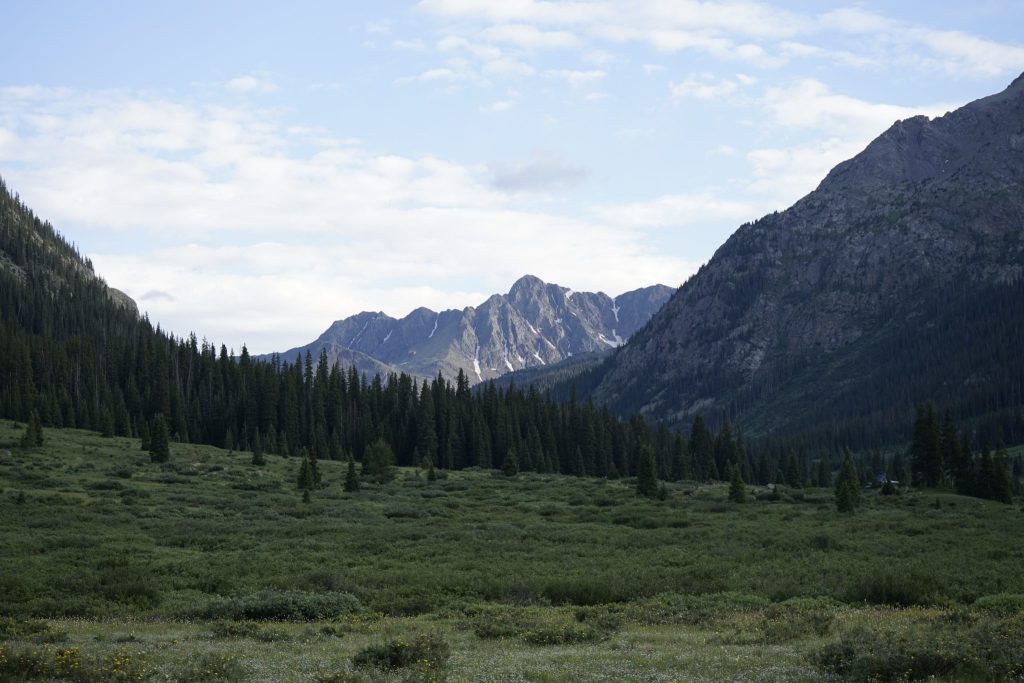Colorado Parks and Wildlife releases cause of death for hundreds of fish in Grizzly Reservoir
Nearly 200 fish washed up on shore at the high alpine lake ab

Beau Toepfer/The Aspen Times
Rising water temperatures and declining water quality are responsible for the death of nearly 200 fish at Grizzly Reservoir in Pitkin County, according to the results of Colorado Parks and Wildlife’s preliminary investigation.
Grizzly Reservoir is a high alpine lake located above Aspen and formed by the damming of Lincoln and Grizzly creeks. The investigation was conducted in partnership with Pitkin County Public Health, Pitkin County Healthy Rivers, the Roaring Fork Conservancy, the U.S. Forest Service and the Twin Lakes Reservoir and Canal Company after the fish were discovered dead on the reservoir’s shoreline.
Parks and Wildlife staff concluded that the fish deaths were attributed to deteriorating water quality entering Grizzly Reservoir from Lincoln Creek, rising water temperatures and the loss of a clean water source from Lost Man Diversion Canal due to naturally declining flows.
Higher water temperatures — caused by warmer weather and reduced streamflows — can increase the toxicity of metals in bodies of water.
“While water temperatures were within the acceptable range for rainbow trout, the combination of rising temperatures and increased copper toxicity likely contributed to the fish mortality observed during this event,” Parks and Wildlife reported in a news release.
Higher concentrations of metals, particularly copper, can decrease the pH of the water, which investigators have also observed in Lincoln Creek. The wildlife agency reported that members of the Lincoln Creek Workgroup observed a decrease in the pH of water flowing into Grizzly Reservoir. Results from additional samples taken in the creek on Aug. 19 are still pending.
Parks and Wildlife said that during stocking events in July and August — where the agency filled the reservoir with catchable rainbow trout — water temperature and pH levels were deemed appropriate for the fish.
Additionally, Parks and Wildlife reported that flows in Lost Man Creek and the Roaring Fork River had naturally declined to a level that diversions to Grizzly Reservoir were no longer being made by Aug. 10. This reduced the amount of fresh water entering Grizzly Reservoir, which in turn diminished the dilution of already poor-quality water from Lincoln Creek.
Lincoln Creek, which is a tributary of the Roaring Fork River, has been subject to increased scrutiny and monitoring following increasing metal contamination and declining water quality, which has caused previous fish kills and discoloration of the reservoir.
A 2023 Environmental Protection Agency report found that the creek from the Ruby Mine to Grizzly Reservoir exceeds Colorado Department of Public Health and Environment water quality standards for a number of metals and is toxic to aquatic life.
Now, monthly water samples are taken in the creek during the summer.

Support Local Journalism

Support Local Journalism
Readers around Glenwood Springs and Garfield County make the Post Independent’s work possible. Your financial contribution supports our efforts to deliver quality, locally relevant journalism.
Now more than ever, your support is critical to help us keep our community informed about the evolving coronavirus pandemic and the impact it is having locally. Every contribution, however large or small, will make a difference.
Each donation will be used exclusively for the development and creation of increased news coverage.










